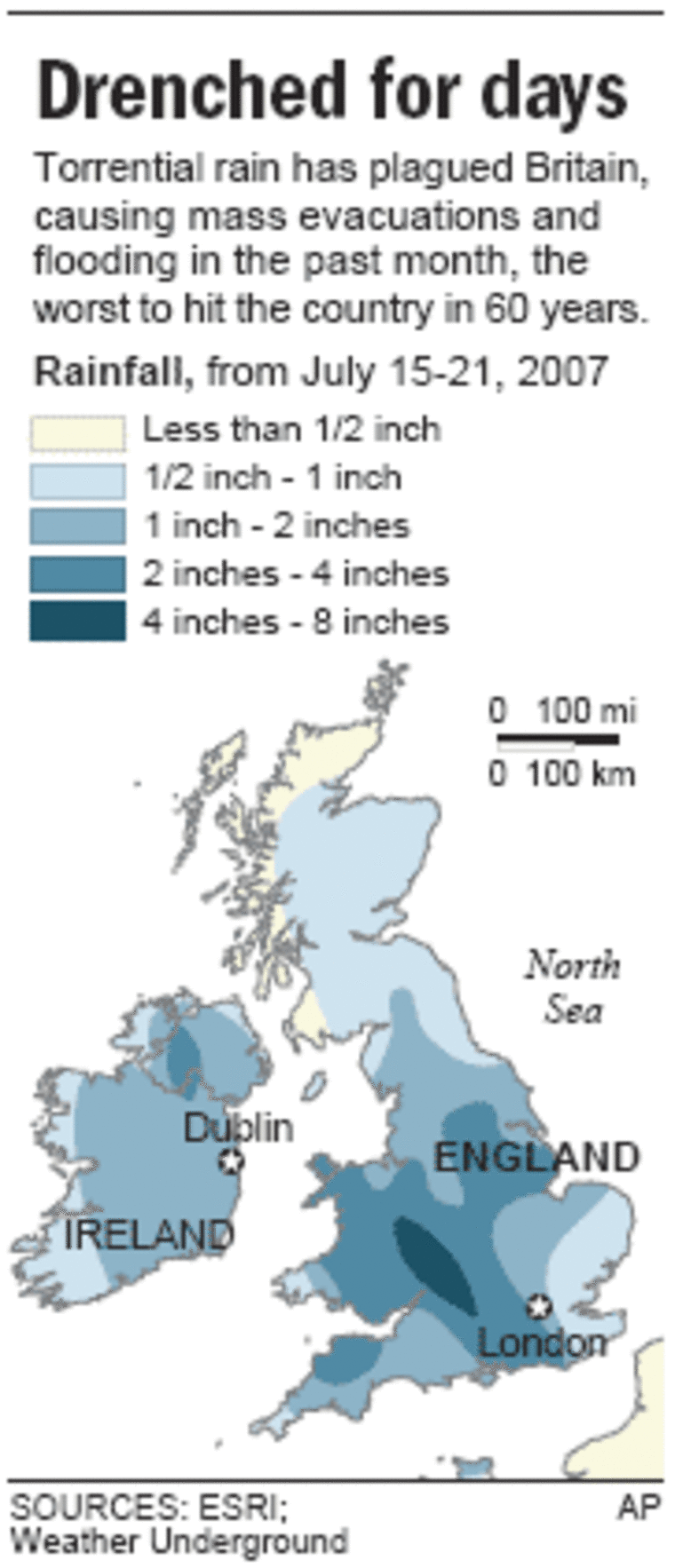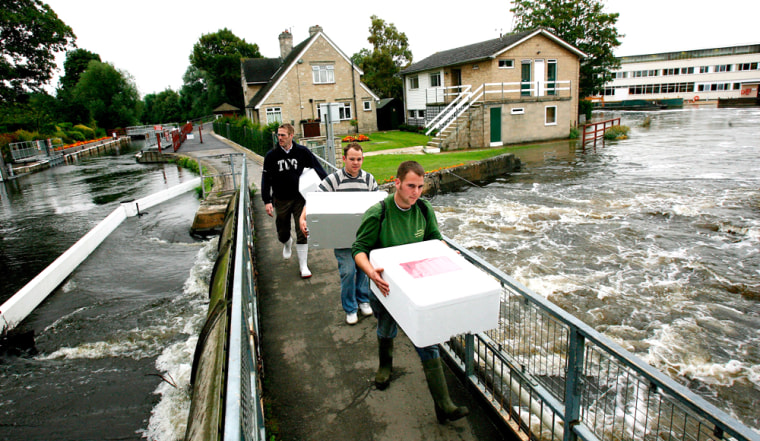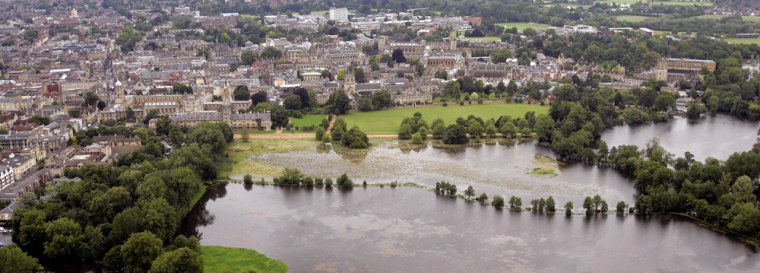Oxford University stacked sandbags around its music department but the renowned school’s main classrooms escaped the brunt of Britain’s worst floods in 60 years as water pushed through the Thames Valley on Wednesday.
Most of university buildings were perched above the city’s rain-swollen waterways, which forced nearly 100 residents from their homes and into a stadium. Many residents watched nervously as passing emergency vehicles sent waves lapping toward doorsteps.
“I ain’t going,” said Alice Jones, 90, who declined to leave her home in a flood-hit area of Oxford. “I’ve got a pair of Wellingtons, haven’t I?”
Water levels crested late Wednesday in the university town, but other communities west of London — such as Reading, Henley-on-Thames and Windsor — were taking precautions as forecasters predicted water levels would peak Thursday.
Windsor — home to Windsor Castle — would likely avoid flooding because of substantial flood defenses. London is also expected to escape.
“It’s impacted the fun part of the trip; it hasn’t impacted the business part,” said Susan Peterson, a literature professor from Curry College in Massachusetts, who was in Oxford for a conference.
'Come hell or high water'
Oxford’s 38 colleges, where the academic year ended for undergraduates in mid-June, were spared flood damage. Its many buildings — particularly the university’s Christ Church Cathedral — continued to draw tourists Wednesday.

“We’ve been here for about a week and a half,” said William Brugger of Rexburg, Idaho. “We haven’t really been affected, except for the ability to take trains. We would have liked to have gone to Stratford,” he said of Shakespeare’s birthplace.
Many trains across the region were canceled or suspended.
Streets in Oxford’s flooded areas — about a mile from the university — were covered by as much as 4 feet of water.
At the flooded George Inn pub on Botley Road, a sign proclaimed: “Open for business — come hell or high water.”
“It’s quite good fun, actually. People are much nicer to each other than they normally are,” said Martin Oliver, an employee at the Courtney Pianos store.
'What can you expect?'
Britain has had one of its wettest summers on record, a sharp contrast to last summer — one of its driest and hottest. Nearly 5 inches of rain fell in some areas on Friday alone. More rain fell Saturday, Sunday and Monday. And rain was forecast for Thursday.
Anthony O’Rourke said he was resigned to the flooding. “If you buy a house next to a stream, or even a braided network of them, what can you expect?” he said.
Waters receded upstream in the hard-hit cities of Tewkesbury and Gloucester, where nearly 350,000 people were still without drinking water. The water treatment plant flooded, and authorities said it could be up to two weeks before services were restored.

One man died in the floods and another is missing.
A woman in Tewkesbury lost premature twins after going into labor during the flood. Two Royal Air Force helicopters were sent to retrieve the woman and her premature newborns, but the babies died at a hospital.
Damage from the flooding could cost insurers more than $6 billion.
William Chase said up to 60 percent of his potato crop in Herefordshire and Gloucestershire could be lost. “We have probably lost about 40 percent at the moment, and the way it is going we will probably lose about 60 percent,” he said.
